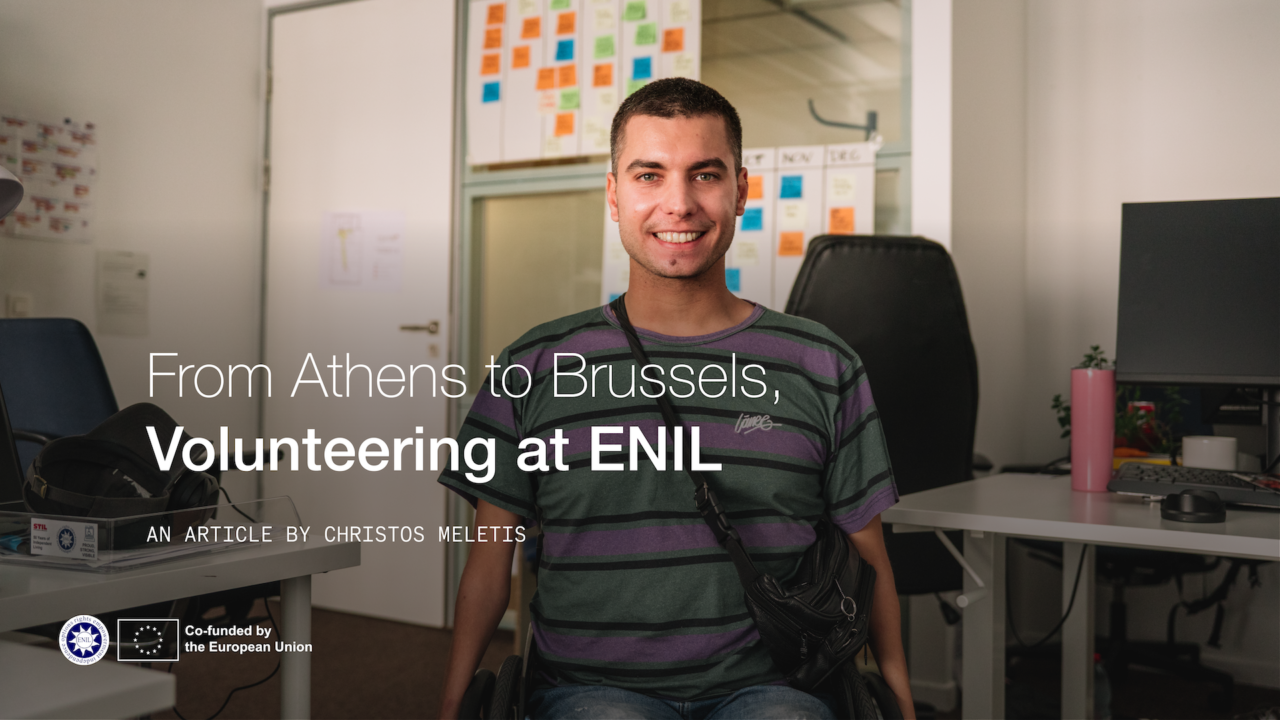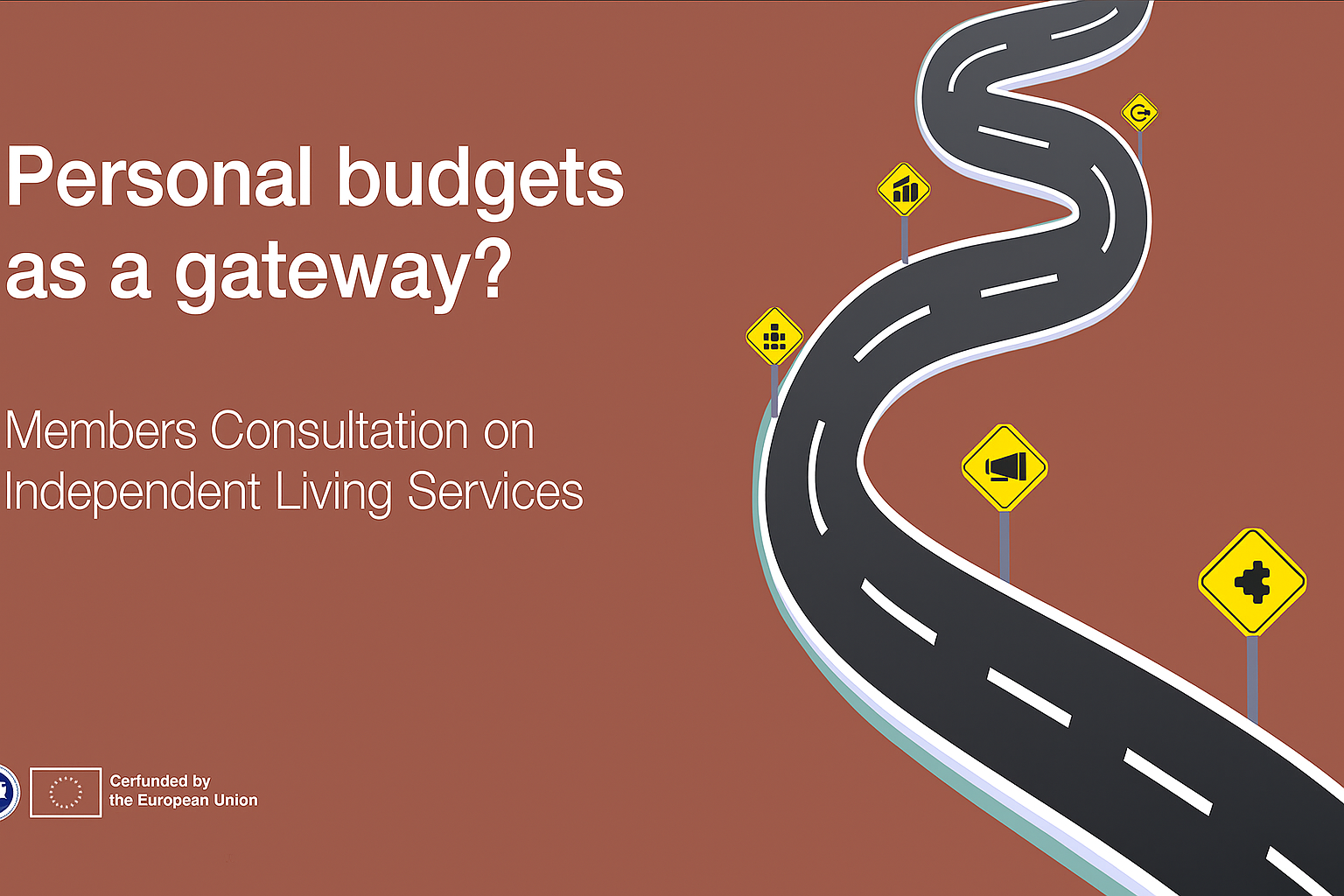Ya sas everybody! I am Christos Meletis, a 30-year-old wheelchair user from Athens, Greece!
I am excited to announce that, during the next 6 months, I will be volunteering for ENIL!
Now, let me give you some information about me and where I stand on some disability matters (pun intended), so that you get to know me a bit better:
I chose to start an internship with ENIL because I wanted to learn how to implement best practices to pursue societal change for disabled people, and there is no better place for me to learn those practices than ENIL – an organization at the forefront of the disability movement in Europe.
More specifically, disability rights advocacy (that aims to cause societal change) can be done in many ways, and sometimes it may seem like a daunting task. Through my internship, I want to understand the inner workings of the EU – which sets the tone for disability policy in every European member state – and acquire skills that can help me impact the lives of disabled people.
Going back to disability advocacy, I would like to preface that “disability advocacy” means to me: not accepting the exclusion imposed on us by a system that often treats disabled people as less competent, with lives not worth living, and actively acting against it. Those negative beliefs are – sadly – deeply rooted in many societies, and to change that, disabled people need to use every advocacy tool at their disposal to its full effect.
The advocacy tool I’ve used to a great extent is: creating disability-related content for social media. For me, social media can greatly impact the disability community’s fight for emancipation, since social media platforms are today’s town squares where people socialize and exchange ideas. In addition, social media can improve the visibility of the disability community in society – especially since this visibility is often limited in the physical world by societal barriers to participation – and influence public opinion in ways valuable to our efforts toward a more inclusive future.
Throughout the previous years, I’ve witnessed the impact of disability advocacy through social media content on public opinion. In particular, I’ve seen the shift in many disabled and non-disabled people’s minds after learning about the Social Model of Disability. To elaborate, people often tend – through societal conditioning – to attribute the social exclusion disabled people face to their bodies/impairments. The Social Model flips this narrative on its head by simply educating individuals about how context (e.g., the built environment) affects disabled people’s participation in everyday life. The Social Model makes it clear that, in most cases, it’s not our bodies’ fault when our societal participation is limited, but rather the result of exclusionary decisions by national and international governing bodies.
In fact, I was introduced to the Social Model of Disability about 5 years ago through social media, and this knowledge lit the spark that began my involvement in disability advocacy.



